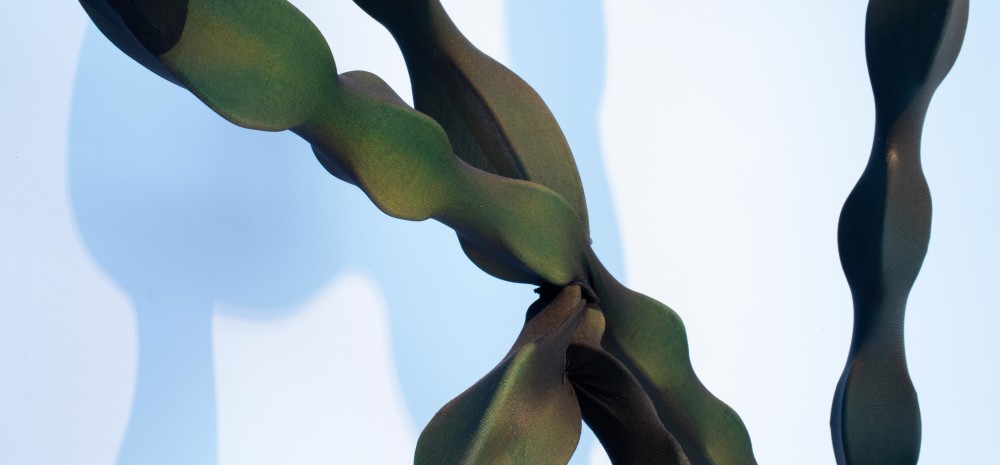Sarah Gendler
Micro Heroes for a Macro Problem
2019
Steel, nylon, pigment, thread 6ft x 3ft x 3ft
The Earth has what she needs, to save Her from ourselves. Our plastic manufacturing around the world is killing ecosystems everywhere. There is no denying or forgetting it, but we can do something about it.
Various studies* have been done showing the rate of decomposition of polyurethane products when combined with the spores of the soil fungus, Cladosporium Cladosporioides to be faster than other fungi that were tested. This fungus and a handful of other fungi, bacteria, enzymes, and even some worms can help us solve the colossal problem we’ve made for ourselves. I want to magnify the microscopic fungi, Cladosporium Cladosporioides, 91,500 times its natural size, to create a symbol for all of the powerful organic heroes in nature that may be overlooked, unappreciated, or unheard of. We want to encourage and support nature, not suffocate Her in our plastics.
The issue of recycling is something I have been aware of since adolescence. I grew up with my Dad separating the different materials from our trash, by hand, each week for trash collection. This topic of plastic in the ocean is an issue that is unreasonably out of control and needs serious collective attention. Upwards of half to ninety percent of plastics do not reach the recycling process, but end up in landfills and then the oceans. The installation, Micro Heroes for a Macro Problem, will bring awareness to viewers about the wonders of Earth that can help us and all of the inhabitants of our diverse ecosystem.
There are currently scientists and artists working on creating systems to combat plastics using fungi and bacteria, and to have the and product be edible. (http://www.livinstudio.com/fungi-mutarium â†check out this link for more info)
Together we can boost the interest, and spread awareness to support this endeavor while reminding people that nature has the answers, although we may need to look very closely for them.
*https://sciworthy.com/can-some-fungi-clean-up-plastic-pollution/
*https://journals.plos.org/plosone/article?id=10.1371/journal.pone.0202047
